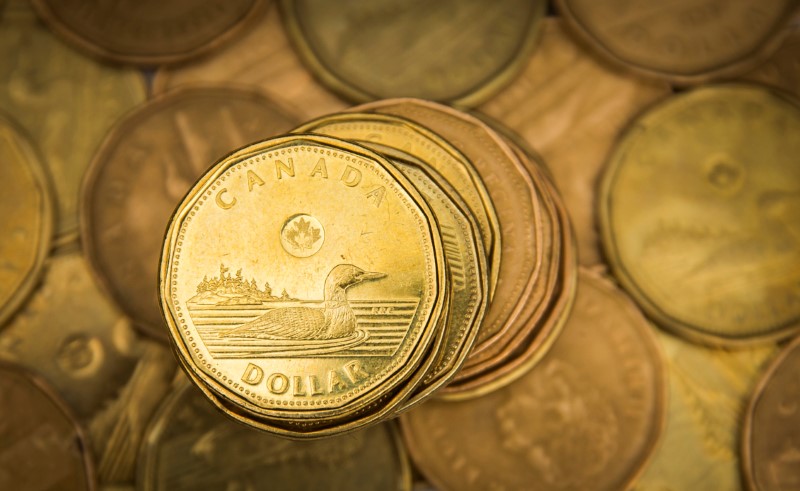* Canadian dollar falls 0.2 percent against the greenback
* Loonie falls 0.4 percent for the week
* Canadian bond prices rise across the yield curve
* Canada-U.S. 10-year spread widens by 4.2 basis points
By Fergal Smith
TORONTO, Dec 14 (Reuters) - The Canadian dollar lost ground against its broadly stronger U.S. counterpart on Friday as investors worried about signs of slower global growth and braced for a potential interest rate hike next week from the Federal Reserve.
At 4:12 p.m. (2112 GMT), the Canadian dollar CAD=D4 was trading 0.2 percent lower at 1.3382 to the greenback, or 74.73 U.S. cents.
The currency traded in a range of 1.3346 to 1.3402. It was down 0.4 percent for the week.
"It has been a risk-off day for sure and that ties into the weaker-than-expected Chinese data that we had overnight," said Bipan Rai, North America head of FX strategy at CIBC Capital Markets.
Weak data from China and Europe stoked fears of a global economic slowdown, pressuring stocks and the price of oil, one of Canada's major exports. crude oil futures CLc1 settled 2.6 percent lower$51.20 a barrel, while the U.S. dollar .DXY climbed to a 19-month high against a basket of currencies. U.S. retail sales in November helped boost the greenback, ahead of an interest rate decision next week by the Fed. Money markets see a greater-than 70 percent chance of a rate hike. FEDWATCH
The Fed decision will help determine the direction of the Canadian dollar next week but the currency will also take its cue from domestic inflation and gross domestic product data, Rai said.
Canadian inflation data for November is due next Wednesday and the October GDP report is due next Friday.
On Friday, data from Statistics Canada showed that the ratio of household debt-to-income widened to 173.8 percent in the third quarter, to hold near a record high, from an upwardly revised 173.2 percent in the second quarter. have cut their bearish bets on the Canadian dollar for the first time in five weeks, data from the U.S. Commodity Futures Trading Commission and Reuters calculations showed. As of Dec. 11, net short positions had dipped to 11,669 contracts from 12,936 a week earlier.
Canadian government bond prices were higher across the yield curve, with the two-year CA2YT=RR up 8.5 Canadian cents to yield 2.021 percent and the 10-year CA10YT=RR rising 49 Canadian cents to yield 2.101 percent.
The gap between Canada's 10-year yield and its U.S. equivalent widened by 4.2 basis points to a spread of 79.4 basis points in favor of the U.S. bond.
